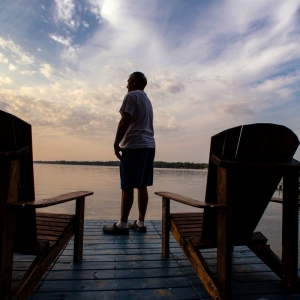The Stream, October 29, 2020: Climate Change Forces Indian Cities To Reinvent Urban Planning
YOUR GLOBAL RUNDOWN
- Major Indian cities are factoring climate risks into new urban planning strategies.
- Legionella is found in an Israeli hospital’s water supply.
- Mexican National Guard members are arrested in connection to a woman’s death during protests at the La Boquilla dam in September.
- Covid-19 is increasingly being found in Boston area sewage.
A majority of countries are exposed to climate risks that could impact food imports, a new report finds.
“We found that the role of trade has been massively underplayed as a source of resource insecurity—it’s actually a bigger source of risk than domestic production.” – Dr. Oliver Taherzadeh from the Cambridge Department of Geography. A new study out of the University of Cambridge found that globalization has decreased the security of global supply chains and most countries and industrial sectors are greatly exposed both directly and indirectly to over-exploited and insecure water, energy and land resources. Severe weather events like drought or flooding can put food imports, which many countries are highly dependent on, at risk. The study found that this is especially true for the world’s largest economies, like in the U.S., China and Japan, due to their volume of international trade.
THE LATEST WATERNEWS FROM CIRCLE OF BLUE
Tajikistan, “House of Water,” Where Half of the Population Lacks Access to Water – Many Tajik residents lack proper access to clean water. They travel great lengths – even crossing borders each day – to collect the water they need for cooking and cleaning.
HotSpots H2O: Proposed Dams Strain Water Politics in Iraq – A proposal by Kurdistan officials to build dozens of dams as a response to water insecurity has caused concern in Iraq, reported DW. The dams could increase water shortages and lead to environmental degradation downstream in the vulnerable Mesopotamian marshes, critics argue.
Israeli Hospital Forced To Shut Down Covid-19 Ward Due to Discovery of Legionella in Water System
Legionella, the bacteria that causes Legionnaires’ disease, was found in the water of the Hasharon Hospital in Petah Tikva outside of Tel Aviv, the Times of Israel reports. The discovery forced the hospital to shut down its coronavirus ward and move its six patients to another location. Hasharon became Israel’s first hospital to fully dedicate itself to treating Covid-19 patients in March but has since returned to regular operations in addition to maintaining a coronavirus ward. Legionella thrives in stagnant water and experts have warned for months that the reopening of buildings during the coronavirus pandemic could lead to a Legionnaires’ crisis.
TODAY’S TOP STORIES, TOLD IN NUMBERS
SIX MEMBERS OF THE MEXICAN NATIONAL GUARD
Six members of the Mexican National Guard have been arrested after a woman was shot and killed during a clash with protesters in the northern Chihuahua state, where protesters occupied the La Boquilla dam in September to stop water withdrawals to pay the United States under a 1944 water-sharing treaty, the AP reports. The National Guard initially said shots were fired from the vehicles and troops returned fire and the commander of the National Guard later said the death of the woman “a regrettable accident.” Mexico and the U.S. reached a deal late last week for Mexico to pay back their water debt by sending water from other dams to the United States.
In context: HotSpots H2O: Conflict Over U.S.-Mexico Water Treaty Escalates as Farmers take La Boquilla Dam
5.7 BILLION RUPEES ($77 MILLION)
The Indian city of Hyderabad saw its heaviest rainfall in a century last month, which left 5.7 billion rupees ($77 million) in damage to roads and drains, according to officials. Reuters reports that although the city is known as a high-tech hub, urban planners—like those in many other Indian cities—rarely consider the impacts of climate change when designing projects. Now, the Climate Centre for Cities at India’s National Institute of Urban Affairs (NIUA) is creating a new project that aims to incorporate climate risks like cyclones, floods, heatwaves, water scarcity and drought into urban planning strategies.
ON THE RADAR
Public data from the Massachusetts Water Resources Authority shows that Covid-19 is being found more frequently in Boston area sewage, NBC10 Boston reports. Ashish K. Jha, dean of the Brown University School of Public Health, said the findings are concerning because they show an increase in the prevalence of the virus at large, including among asymptomatic people who likely won’t be tested. The trends are on par with findings elsewhere in the United States, where hospitals are preparing for a second wave of the pandemic. Experts say wastewater data could trace potential Covid-19 outbreaks about a week earlier than contact tracing and more wastewater treatment plants are running pilot studies on the technique.
In context: Enthusiasm But Obstacles in Using Sewage to Monitor Coronavirus
Jane is a Communications Associate for Circle of Blue. She writes The Stream and has covered domestic and international water issues for Circle of Blue. She is a recent graduate of Grand Valley State University, where she studied Multimedia Journalism and Women, Gender and Sexuality Studies. During her time at Grand Valley, she was the host of the Community Service Learning Center podcast Be the Change. Currently based in Grand Rapids, Michigan, Jane enjoys listening to music, reading and spending time outdoors.







Leave a Reply
Want to join the discussion?Feel free to contribute!